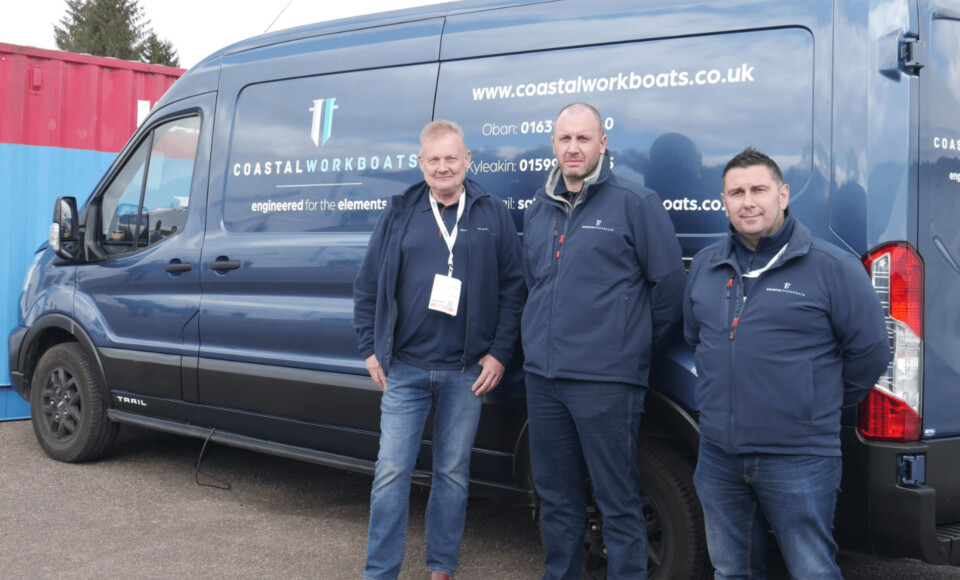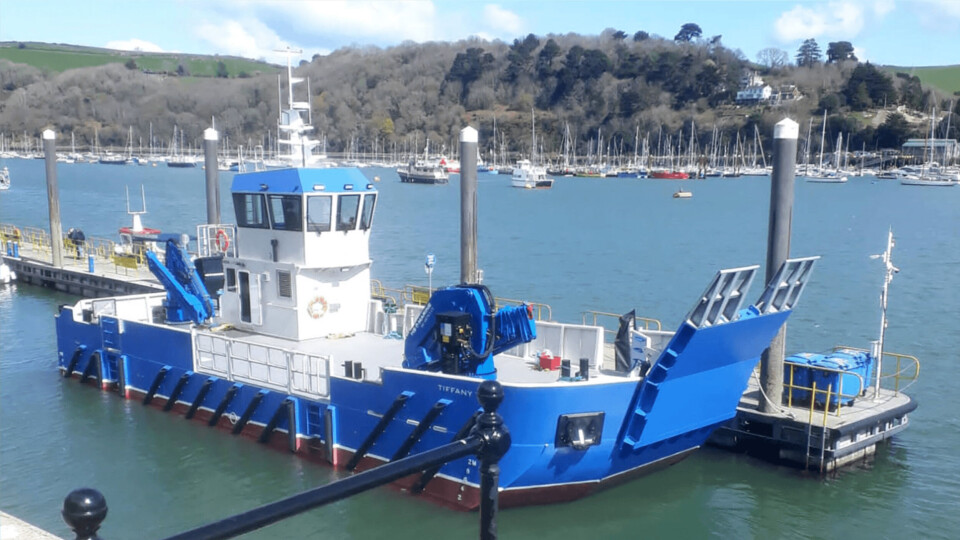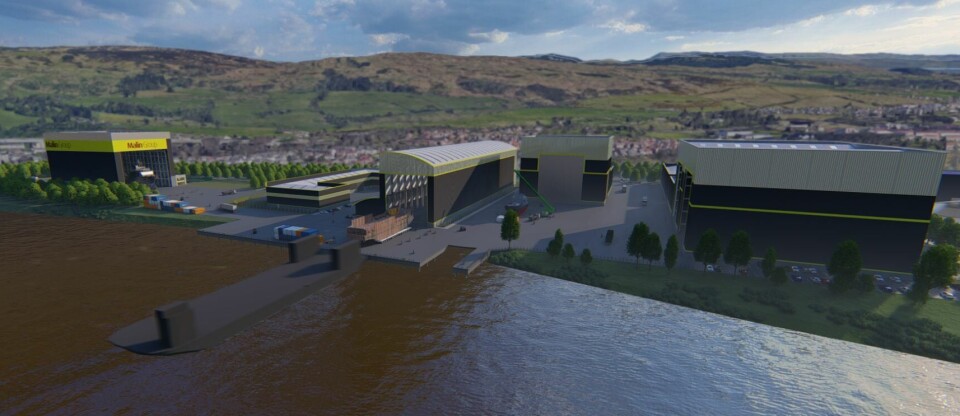
Boat builder moving fish farm vessel construction to Scotland
A Devon-based boat builder that supplies Scottish fish farmers today announced plans to move workboat production to the new Scottish Marine Technology Park in greater Glasgow.
Coastal Workboats, of Exeter, will be the first tenant of the Malin Group of engineering companies, which owns the brownfield site on the banks of the River Clyde at Old Kilpatrick near the Erskine Bridge.
“We’re going to building a new building there, 40 metres long, 30 metres wide and 20 metres high,” Coastal Workboats director Brian Pogson told Fish Farming Expert at the Aquaculture UK trade show in Aviemore today.
“We’ll be producing around four boats a year from that site, and we’ll also be doing service maintenance as well.”

Landing utility vessels
Coastal Workboats has built landing craft-style utility vessels (LUVs) designed by Dutch boat builder Damen, which commissioned the vessels and has sold them to salmon farmers Loch Duart (the Lady Dee) and Organic Sea Harvest (the Bàta nam Bràthairean), and steelhead trout farmer Kames. The Oban fish farmer’s first LUV, the Tiffany of Melfort, was damaged beyond repair after breaking free from its moorings during a storm but was replaced by the larger Tiffany II last month.
Damen is planning to have another four LUVs built by Coastal Workboats which it will keep on stock for sale to the industry.
“We’re envisaging employing 50 people,” said Pogson. “We’re looking to out four boats a year through the facility – landing craft, catamarans, workboats. We’ll be able to build boats up to 40 metres in there. That’s really the limit that we want to go to within this sector.”

Maintenance service
Development of the marine technology park is still at an early stage, so Coastal Workboats doesn’t expect to be up and running on the new site until 2025. But it is also in discussions with Malin about using an existing facility that would allow it to start building boats in Scotland later this year.
Pogson said Coastal Workboats was also bringing a new preventative maintenance service and software package to the market to improve vessel use and longevity for operators.
“The skippers can have an app on which they can log defects that have occurred on the boat, and that can then be prioritised as high, medium or low. That is then sent back to a central system that we manage. We will have done audits on the vessels so that we know what components are on there, what engines and all the service intervals, etc.
Strategic areas
“We’re basing that service on three vans strategically placed in Scotland to service the various areas, and we’re also employing merchant navy engineers because we want to be able to provide very professional service, and the calibre of people we can get from the merchant navy is high. Also, they’re used to working out of hours, so when boats come in and they’ve got an issue we can perhaps work through the night to get the boats up and running again.”
Robbie Cook, business development director for Coastal Workboats, said the maintenance service would start by the end of the week.
“There’ll be three vans to start with – in the Oban and Skye area, in strategic locations – and that’s a mobile service where we go to the vessels. For vessels we haven’t built, we do an equipment audit on board. The service is offered to any workboat owner.
“The vans are going to be available seven days a week, so we’ll need eight to ten people to start with.”
Commitment to aquaculture
“We want to demonstrate our commitment to the industry,” said Pogson.
“We’re moving our business up on to the Clyde, we’re bringing our service maintenance packages to the door of the operators, and we’ve invested heavily in three new vans, so hopefully our potential customers can see that we are investing in Scotland.”
He added that the company will continue building smaller, aluminium boats in Devon.























































